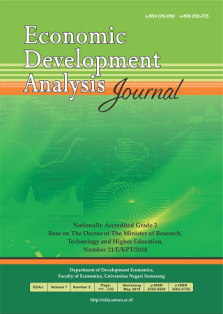The Implementation of Law No 6 Year 2014 in The Village of Tempel Demak Regency
Abstract
The purpose of this study was to determine and describe how the implementation of Law No. 6 of 2014 on the village as well as to identify barriers in the village of Tempel. Analysis of data using analytical methods Miles and Huberman. The theory used is the model of George C. Edward III implementation. The survey results revealed that the implementation of Law No. 6 of 2014 About Village Tempel seen from the aspect of communication, has done good communication between the implementers (village government) with policy targets (Rural Community), from the aspect of resource that government resources Desa Paste not support, from the aspect of attitude executor, implementor claimed responsibility and commitment to the implementation of the policy of Act No. 6 of 2014 About the village, and the bureaucratic structure has not been eligible effectively. Obstacles faced by the village government Tempel is on aspects of communication there has been no follow-up of village representatives who had attended socialization, briefing and training to the other village. In the aspect of the attitude of the implementing namely the lack of response from the public who think the policy is only a mere routine policy, the necessary attitude of high responsibility of the implementor. There are still bureaucratic structure of government resources and Paste village that has not been fully in accordance with Law No. 6 of 2014 About the Village.


